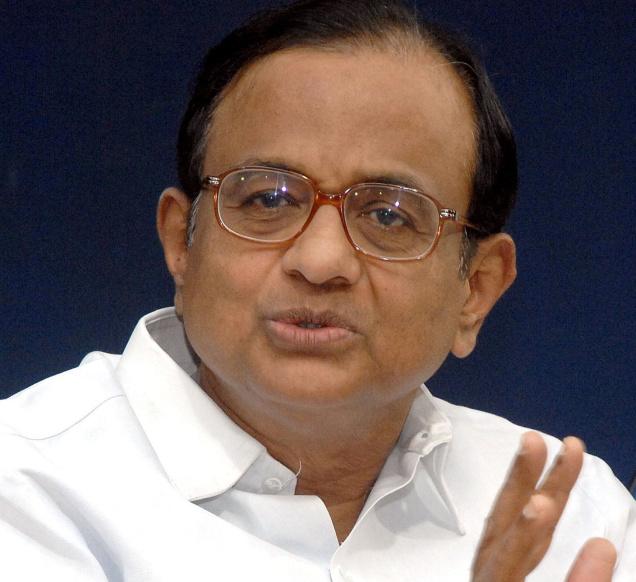Bashing Pak isn’t India’s only option to fight terror
The last few days have been exciting for the Indian establishment. A notorious terrorist, Abu Jundal, held responsible for the 26/11 Mumbai attacks, was caught in New Delhi airport and he reportedly confirmed Islamabad’s hands behind the worst terror attacks that India had faced ever. An elated New Delhi said it had succeeded in convincing Saudi Arabia to deport Jundal while several American quarters backed India, saying the culprits of 26/11 had to be brought to law for many among those killed in the terrible attacks were US citizens.
Jundal’s arrest is undoubtedly a good success story for India, after the Kasab Ajmal and David Headley episodes. But does it signify that we live happily hereafter? Do we just continue to depend on foreign help when it comes to address our suffering in the hands of those merciless souls? Isn’t it high time that we turn our focus to important issues back home that fuel terrorist activities instead of blaming Pakistan each time a busy market or thoroughfare is attacked?
Rise of Islamic terrorism in India
Islamic terrorism has been a concern for India despite New Delhi’s reluctance to acknowledge it openly, something which has made groups like Indian Mujahideen, widely believed to be an offshoot of bodies like SIMI, gain prominence and carry out deadly acts time and again. Just banning these organisations and not addressing the root problems for the rise of these outfits has not helped India’s causes. The IM has been held responsible for a spate of blasts in Jaipur, Ahmedabad, Bangalore, Delhi, Varanasi and Mumbai (last year) that occurred since 2008. Experts said the IM’s top operators received sophisticated explosives training in Pakistan to carry out their anti-India activities. These Indian militant outfits are parts of the bigger international terrorist movement and they share values of some of the terror groups operating from Pakistan.
Socio-economic and political reason
A basic reason for the rise of Islamic terrorists in India is the lopsided social and communal inequalities accompanied with questionable state action. People like Sadiq Israr Sheikh, Abdul Subhan Qureshi, and Riyaz Ismail Shahbandri, who were behind the rise of the IM, at some point of time or the other, were left frustrated with the socio-economic scenario in India or were enlightened by religious studies, something which later emerged into monstrous tendencies under compelling reasons. One of the key factors which encouraged the indigenous militant outfits was the decline of the centrist leadership in the country and its subsequent replacement by a rightist socio-political force since the early 1990s.
The radical Islamists went into the offensive following the Babri Masjid pull-down incident of December 1992. “Islam is our nation, not India,” was a famous statement made by one of the SIMI link man of the lashkar-e-Taiba at that hour. Ten years later, in 2002, the country saw ghastly riots in Gujarat in which several Muslims were butchered. This had fuelled the anti-India sentiments to such an extreme that hundreds of innocent people were killed in a series of blasts and attacks that had rattled India over the next half-a-decade or more. Islamic terrorism subsequently found a firm footing in several parts of the nation.
Kashmir
The story of terrorism in India is incomplete without a mention of Kashmir. The controversial history of the state and the subsequent rise of insurgency in the state has made it a perfect breeding ground for terrorism. Thousands had lost their lives in Kashmir during anti-insurgency operations by Indian forces while more had disappeared. While the Indian side has explained that those who went missing had gone to Pakistan, the hostile neighbour, to receive militant training, the general mood among ordinary Kashmiris reflected annoyance and will to retaliate against the Indian state. Unearthing of mass graves have fuelled their hatred all the more and it is no surprise that atrocities by armed forces coupled with lack of economic development have pushed the young blood of this region into the brink of terrorism. Islamabad did not hesitate to welcome them into its anti-India fold.
Tit-for-tat politics and the political compulsion not to tackle it…
The endless retaliation in terms of communal violence has cost India dearly. Whether be it Islamic or Hindu extremism, retaliatory politics have only bred hatred in our socio-economic milieu. In the recent past, Swami Aseemanand, accused of several terrorist attacks including the Samjhauta Express blast, had confessed during a hearing that he was indeed in favour of attacking Malegaon, Hyderabad, Ajmer and also the Aligarh Muslim University for their Muslim connections. “…we should answer bombs with bombs,” he had said. If this is a worry, even the bigger worry is that our political leadership has not tried to deal with the problem strongly, in fact, it has decided to continue playing with fire.
Two huge problems: Suicidal secularism…
India’s political leadership, influenced by the compulsions of a fragmented polity and the consequent coalition politics, has refused to tamper with a key essential, i.e., the minority vote-bank. It is futile just to accuse the national party, Congress, of playing the card during the polls (BJP obviously is a natural no-no) as even the local parties too are heavily dependent on the factor. A case in point is UP. The new SP government in the state sought legal advice to withdraw terrorist charges brought against Tariq Kazmi and Khalid Mujahid (alleged members of Harkat-ul-Jehad al-Islami or HuJI) of Azamgarh, accused of November 23, 2007, serial blasts in Faizabad and Lucknow court premises.
The SP’s move was based on its pre-election promises to the ‘minority support base’ and it was determined to deliver on that. This is a serious concern of the country’s security for if such accused people end up without facing any legal action owing to the pressure of petty poll politics, then authorities could miss on vital points to crack major terrorist cases and put lives of a large section of the people at future risk. Playing soft communal cards, which Congress often does, also, prove to be counter-productive.
… and weak legal forces
India has been battling extremism in different parts of the country for a long time now but never could succeed in achieving a major breakthrough. It is only after the 26/11 attacks, which involved stakes apart from her own that she made a conscious effort to tackle the menace. But yet, the law is not fully-equipped to kill the demon. The Unlawful Activities (Prevention) Act is not a strong one to deal with terrorism. We must set strong and harsh precedents in terms of punishing a culprit to send strong signals to other terrorist actors. Moreover, we do not have a clear and simple policy like the US or Israel, i.e., nail the culprits, whoever they are. There is in fact no national consensus when it comes to improve the security scenario. Federal problems crop up when the authorities plan to set up a National Counter Terrorism Centre (NCTC) on lines of the US. The police force is under-equipped and over-burdened to deal with a full-fledged terror attack. Arming the policemen with .303 rifles to fight militants with grenades and AK-47 is a comic error.
Foreign policy matters…
Foreign policy is another important aspect where India has failed to gain much advantage. Getting hold of Abu Jundal was an exception undoubtedly. But New Delhi, on an average, failed to come up with timely and mature moves in the past to deal with international terrorism. India’s relation with Bangladesh has deteriorated over the years (the current regime is though a pro-India one) and the infiltration problem has earned wrath of the right-wing Hindu forces. Bangladesh is believed to be a safe route for terrorists to enter India for the western frontier is a closely monitored one.
With regard to Afghanistan, India is still left to achieve a lot for any power vacuum in that country after the Americans’ pulling out would enable terrorist outfits to return to prominence and India would be their nearest rival to hit out at. And of course, there is Pakistan. Given its current situation, it is to be seen whether New Delhi finds enough ammunition to corner it decisively. Our leadership had displayed a pathetic acumen while dealing with Pakistan after the 26/11 attacks a couple of times. Prime Minister Manmohan Singh, soon after the attacks, had invited the ISI chief from Pakistan to India to discuss the terror attacks, something which failed to convince many, followed by committing a blunder at Sharm- al-Sheikh in Egypt the next year. New Delhi also should utilise the poor USA-Pakistan relation of the moment to make more crackdowns.
The onus is on us
It is time that we change our approach towards terrorism. All political forces in the country, which represent the popular aspirations, must abide by the fact that terrorism is a monster, we must kill at once or else it will devour us all. But the problem is that there is a lack of will.
Why don’t the parties give up playing politics on terror?
Why can’t a party like the BJP argue in favour of a trial for people indulging in saffron terror and demand a strict legal action against them if found guilty?
Why don’t the authorities care to improve a national security culture? It is said that the 26/11 killers had reached Mumbai from Karachi, which clearly shows the standard of coastal security, that too in a prime city like Mumbai.
Why can’t we make a strong, intimidating move against terror outfits that are regularly threatening us?
Why don’t we try to improve our socio-economic life so that scope for grievances can be minimised to the maximum?
The answers are tough but not impossible.
source by thatstelugu












